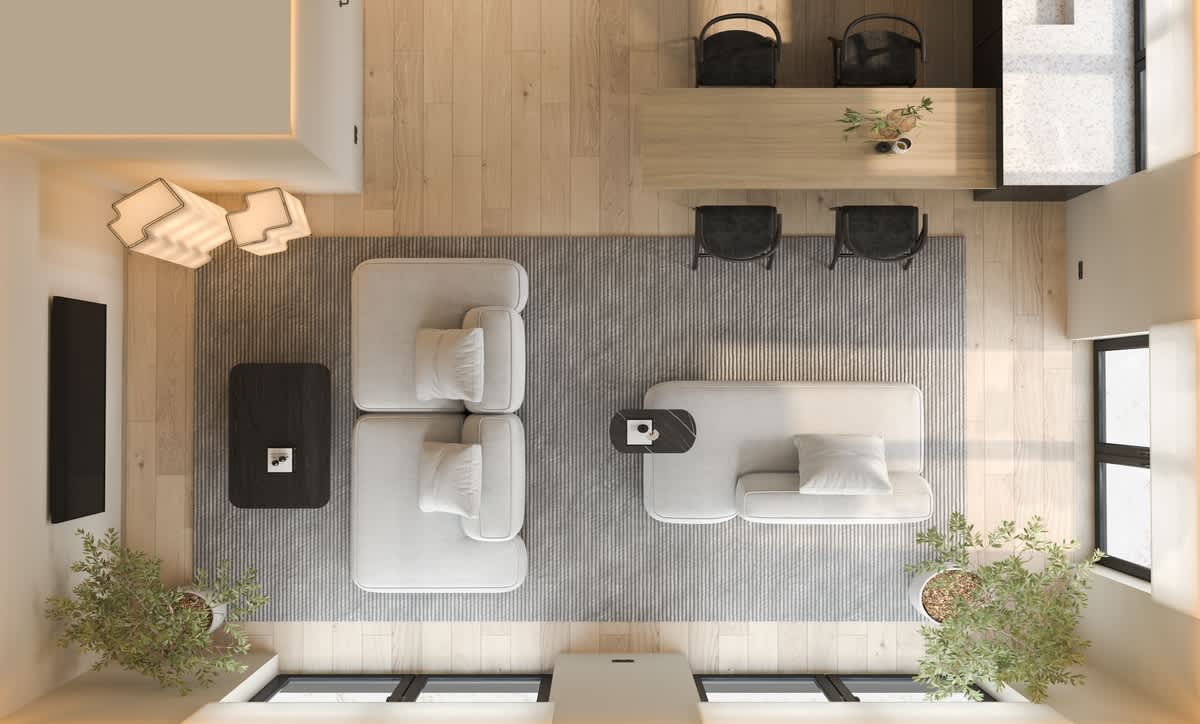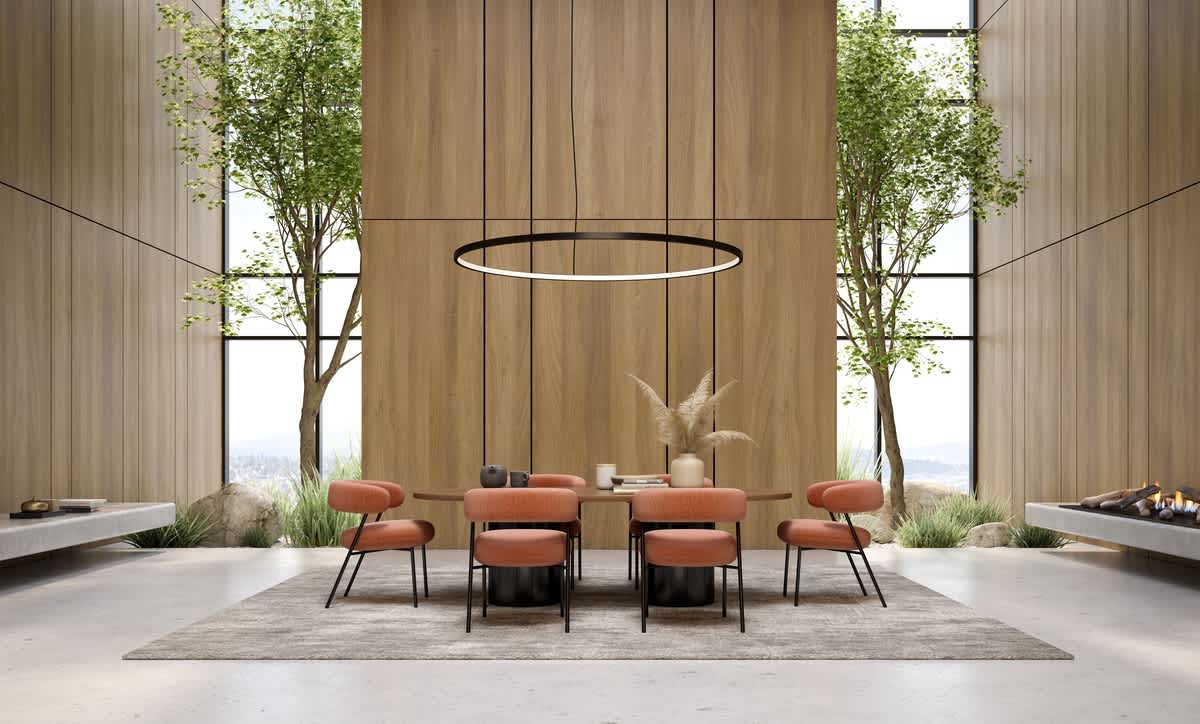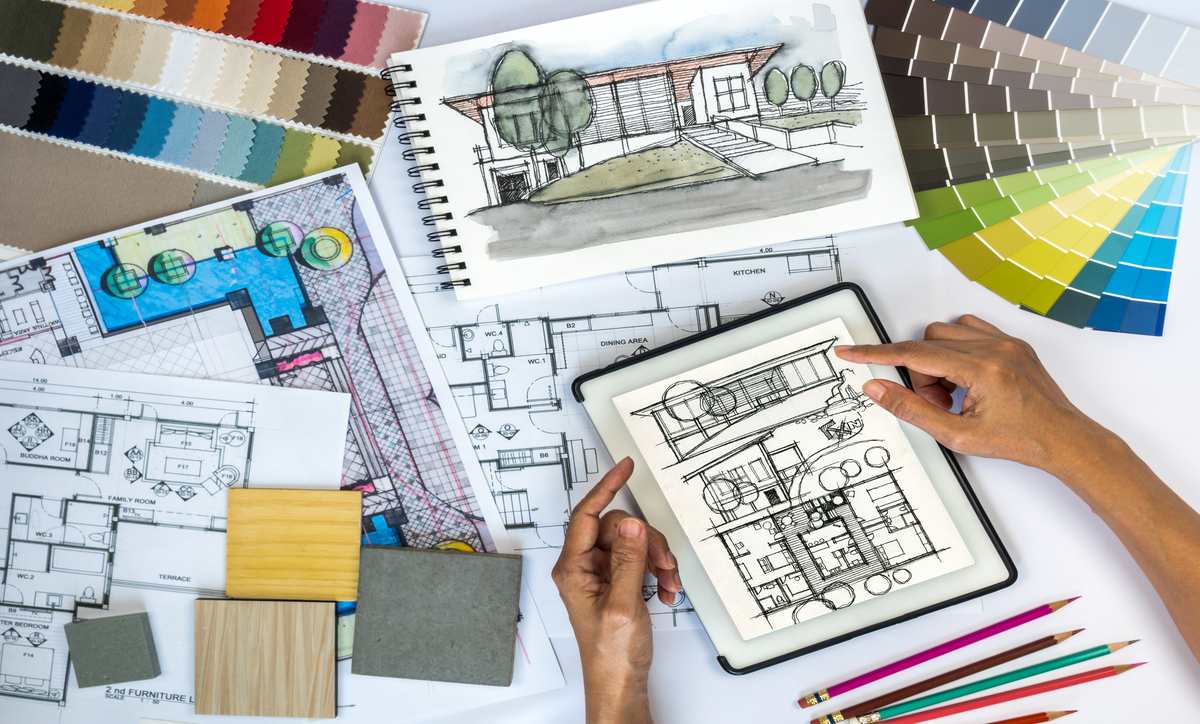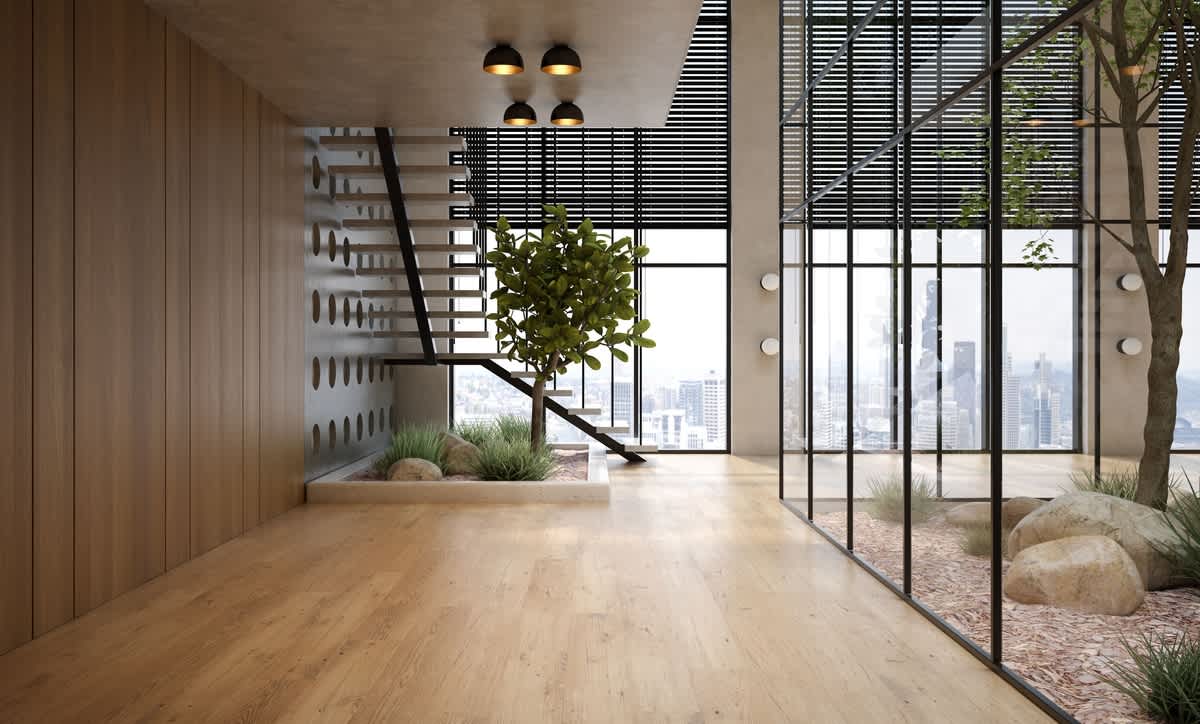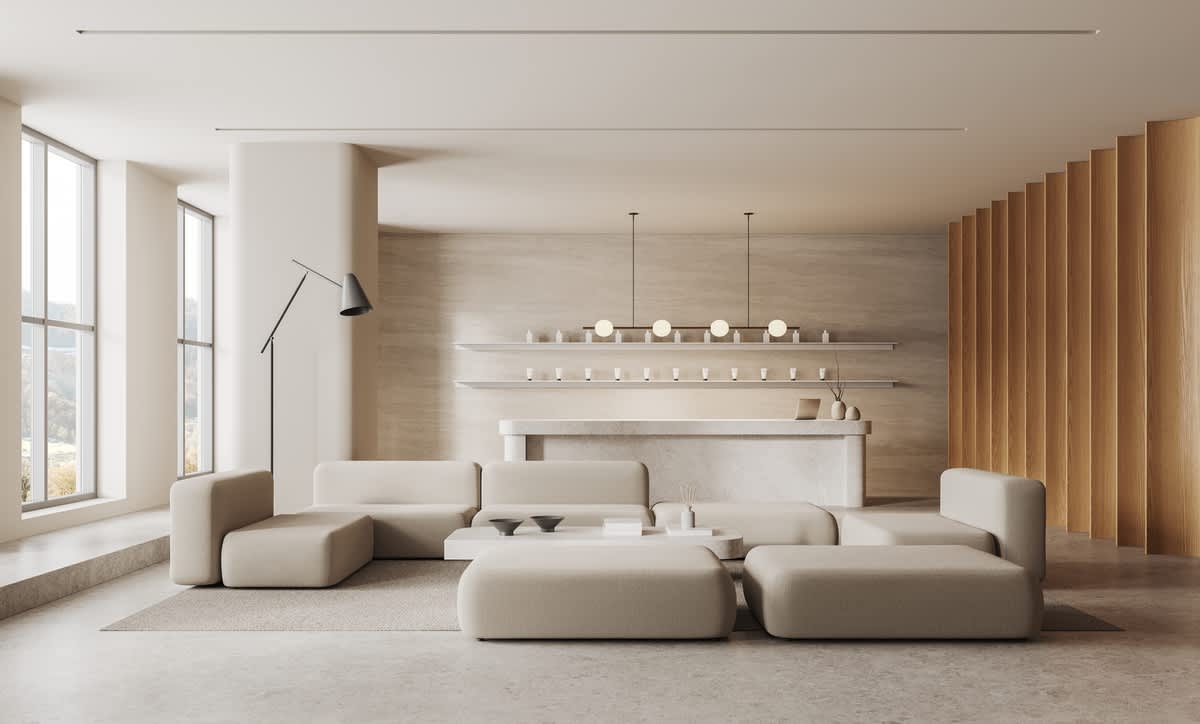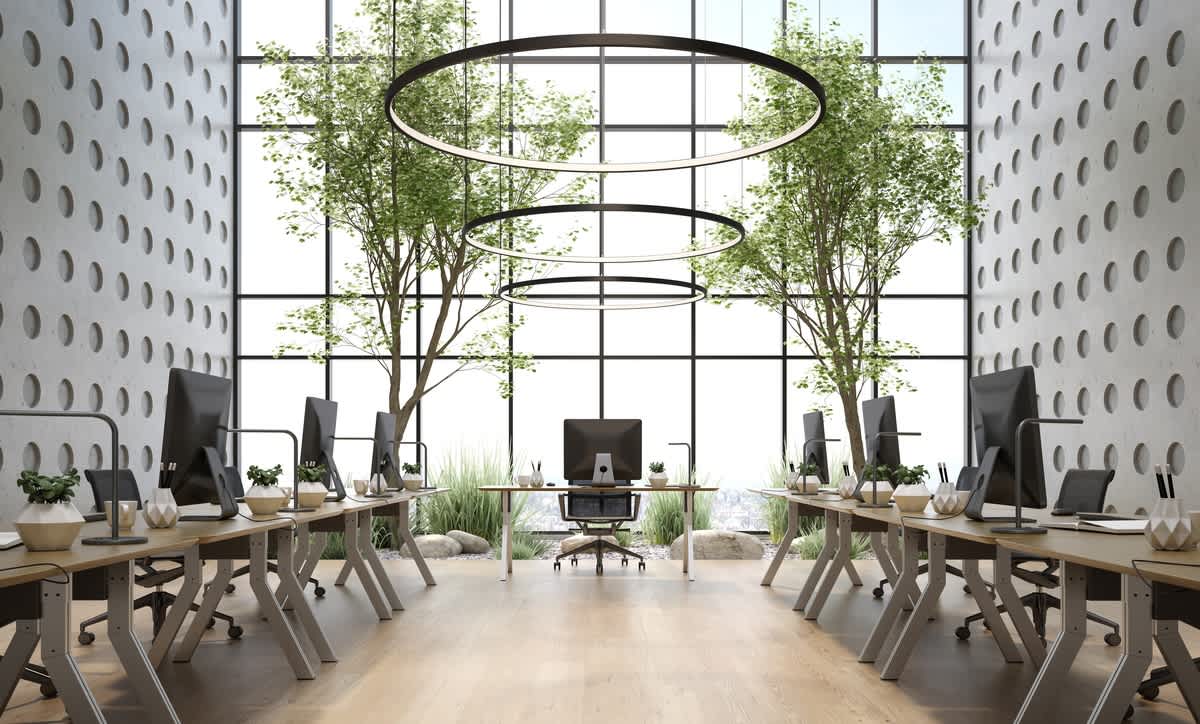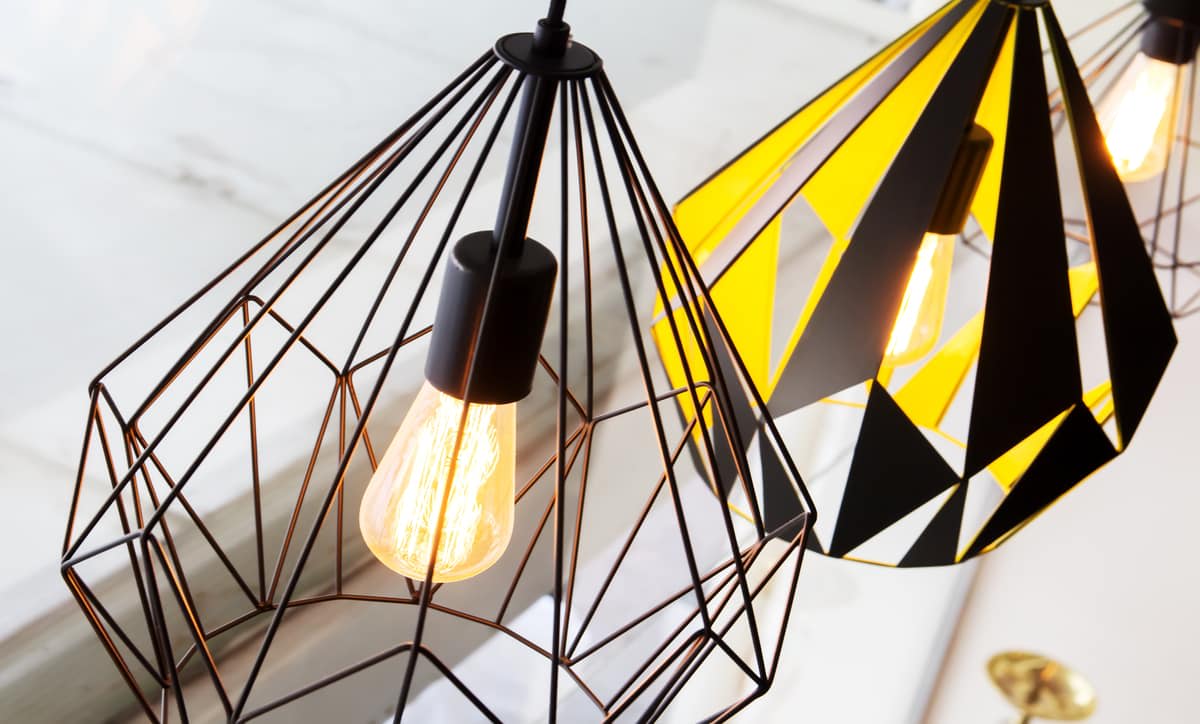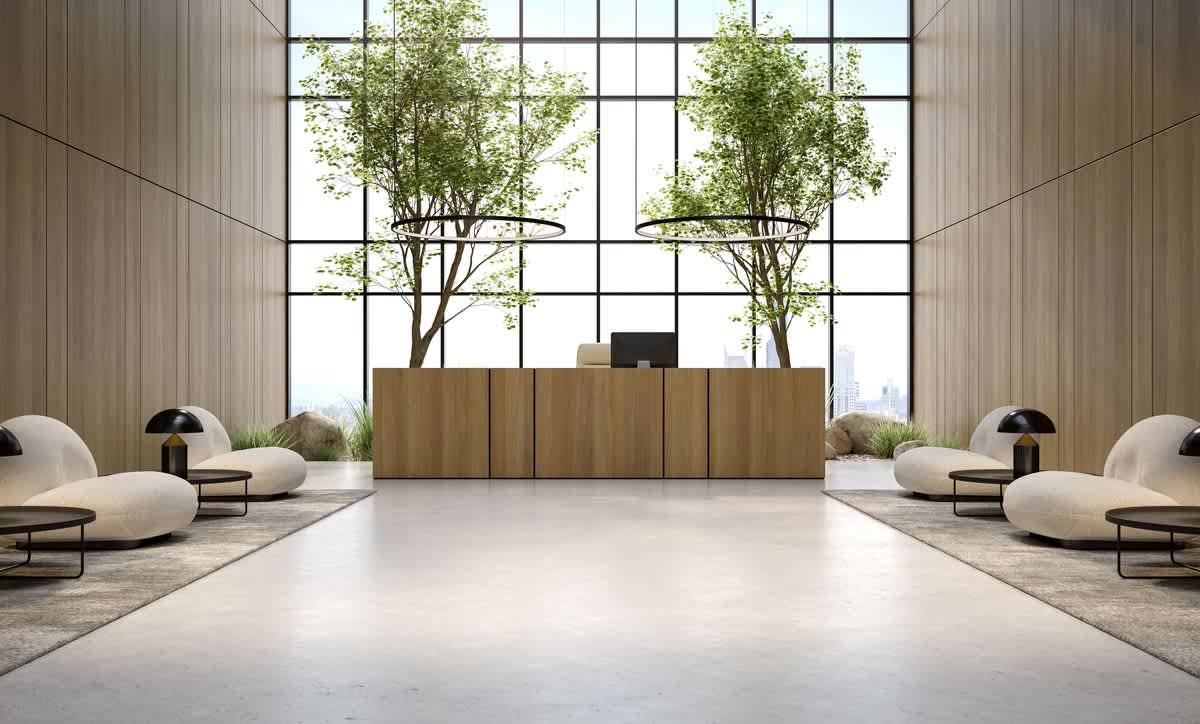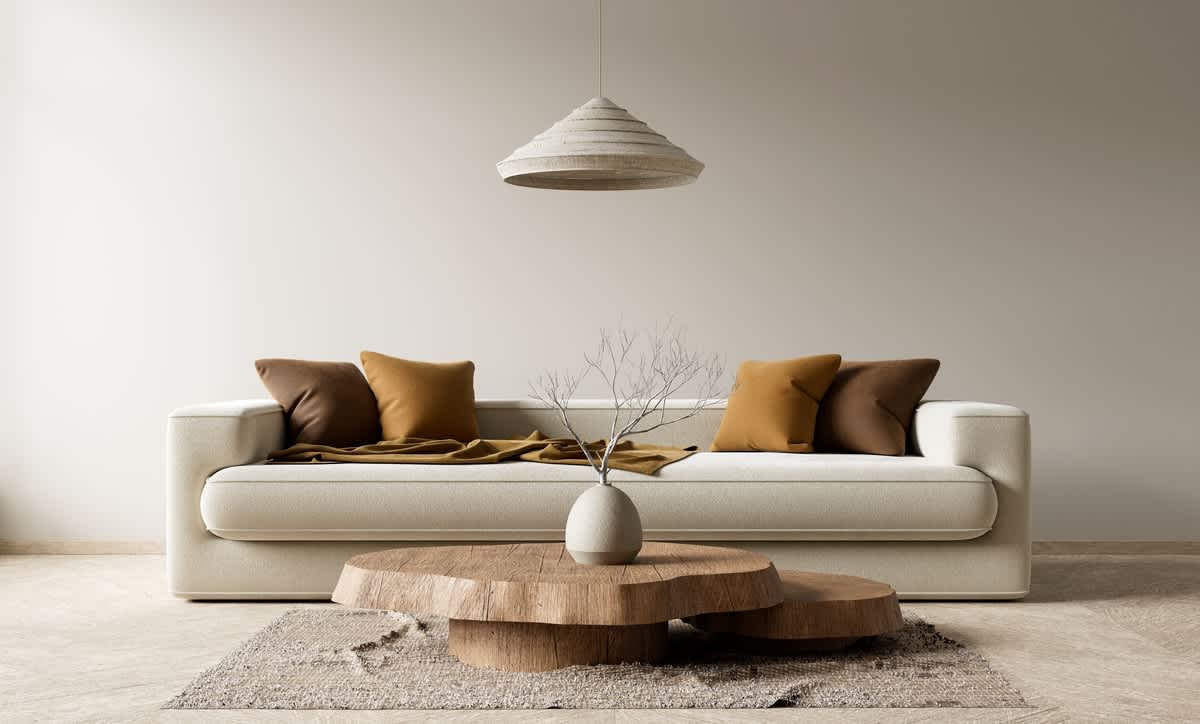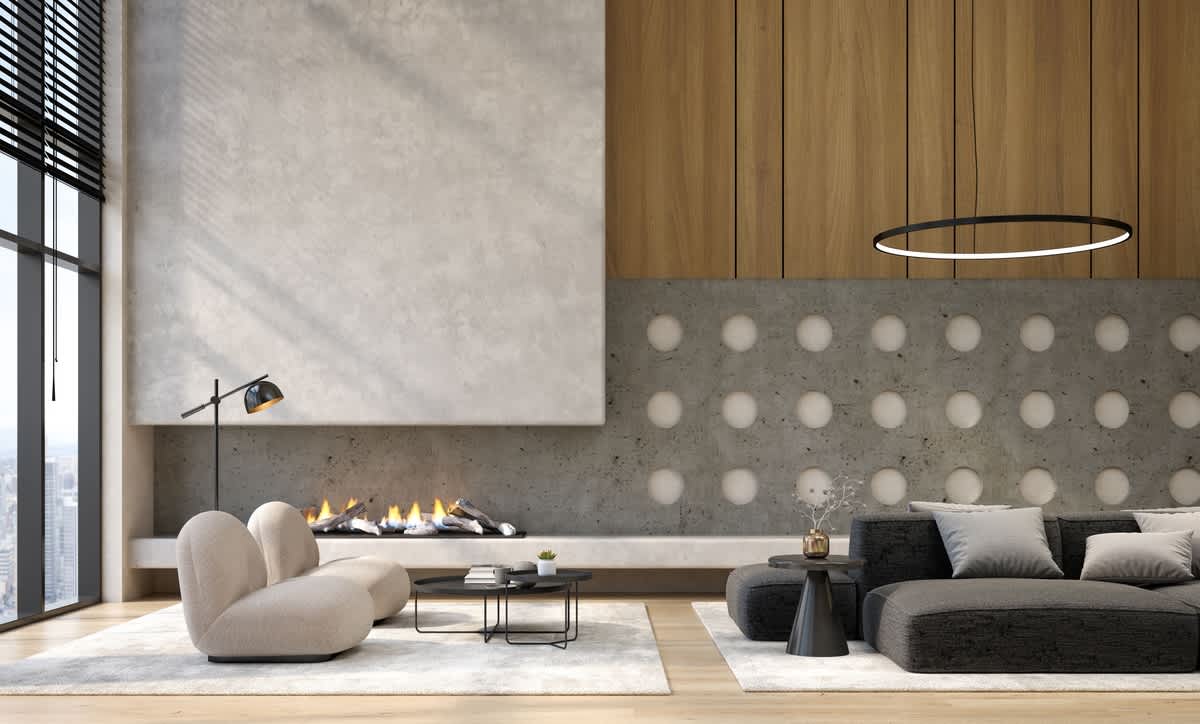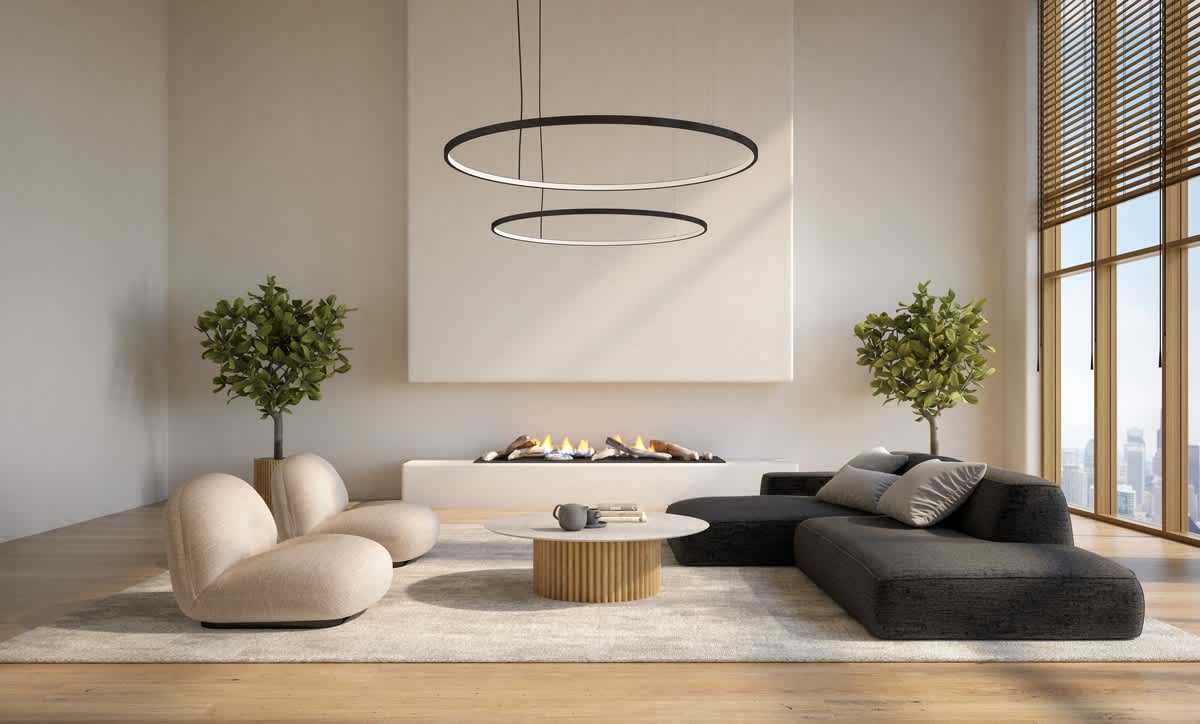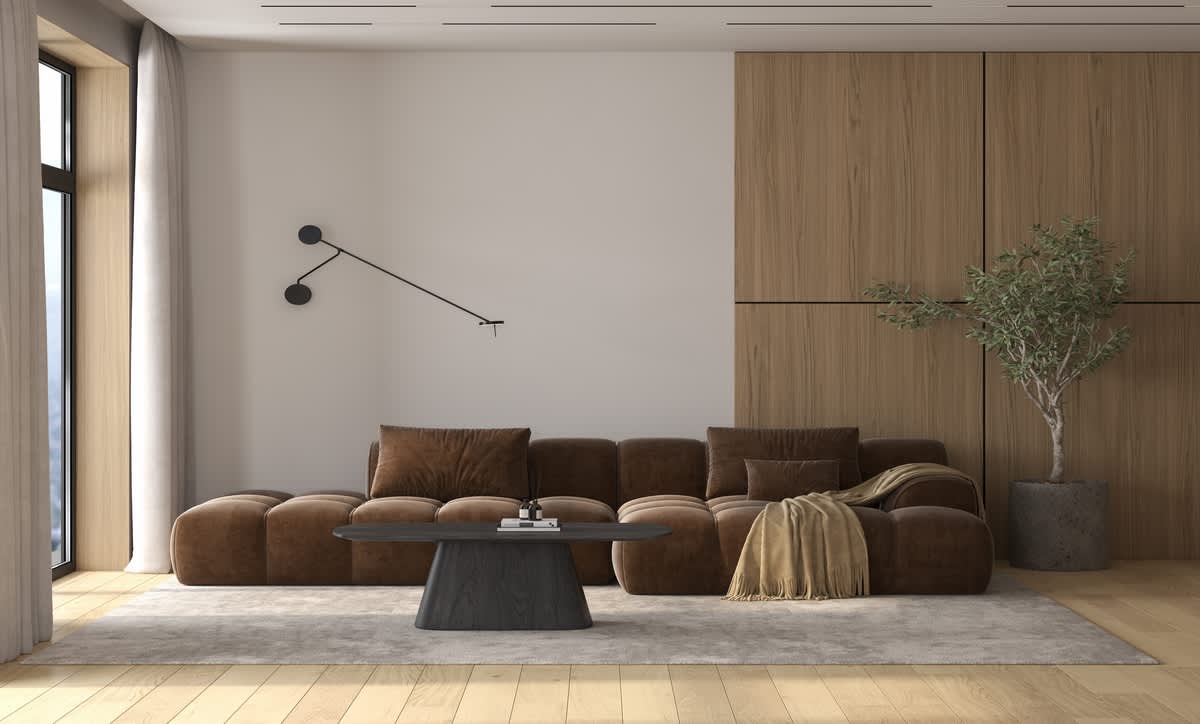Home Page | Blog | Conceptual Design in Interior Architecture – Advanced Project Development
Conceptual Design in Interior Architecture – Advanced Project Development
5/8/2025
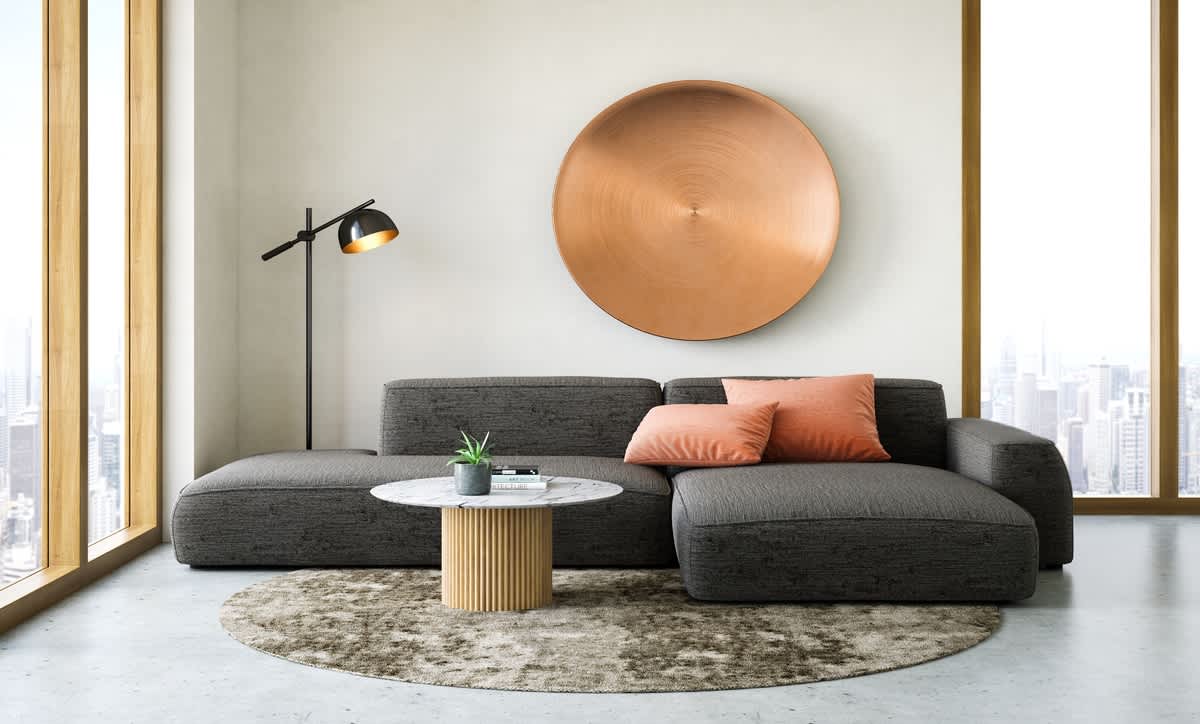
Conceptual design refers to the preliminary phase in which the overarching direction of an interior project is defined. It determines the foundation on which all subsequent design decisions rest. Without this stage, a space may appear cohesive on the surface but lack a deeper structural rationale.
This process is not about immediate selections or layout drawings. It begins with abstract thinking. The aim is to create a central concept that serves as the core reference for the entire development of the project.
1- Defining Conceptual Design
Conceptual design is a framework of ideas that informs form, spatial flow, mood, and experience. It does not rely solely on visual themes. Instead, it integrates psychological, cultural, and spatial elements to give the project meaning and structure.
Primary Purpose
● Clarifies the objective of the space
● Sets boundaries for the design direction
● Facilitates clear communication among stakeholders
● Enables long-term coherence
The concept guides decisions across all levels. From the architectural shell to the smallest decorative object, all elements stem from the established idea.
2- Conceptual Design Compared to Styling
Conceptual design and styling are often mistaken for similar tasks. However, they serve very different purposes.
Comparative Overview
Conceptual Design
Starts at the beginning
Involves spatial reasoning
Influences structure and logic
Based on research and strategy
Interior Styling
Final phase
Focuses on visuals
Involves decor and accessories
Based on taste and trend
A space developed without conceptual structure often struggles to deliver long-term value, especially when aesthetic trends change.
3- How Conceptual Design Shapes the Interior
Conceptual thinking has a tangible effect on architectural choices. It plays a direct role in shaping form, flow, and function across all layers of the project.
Influence on Spatial Flow
The relationship between walls, voids, and access points often reflects the concept. A minimalist approach may lead to open plans and fewer partitions. A historical narrative may result in compartmentalized spaces with detailed elements.
Direction for Materials and Textures
Material selection is not arbitrary. Every surface chosen reflects the project’s conceptual premise. Hard, reflective materials can indicate precision and control. Natural, matte surfaces can suggest calm or quiet.
Impact on Color Strategy
Colors are not only aesthetic choices. They influence perception, scale, and mood. A hospitality interior focused on privacy and retreat may lean toward muted, warm tones. A workspace aiming for clarity and focus may use high-contrast neutrals.
4- Development Process of a Concept
The concept is not a spontaneous idea. It develops over time and requires clear thinking, supported by analytical and creative tools.
Research and Context
● Client lifestyle
● Cultural setting
● Environmental context
● Architectural constraints
These elements guide the formulation of conceptual direction. Without data, the process becomes speculative.
Ideation and Exploration
Following research, designers begin to explore possible directions. At this point, ideas remain abstract. Tools include:
● Visual moodboards
● Written narratives
● Diagrammatic sketches
● Spatial mapping
The focus remains on defining emotional and spatial objectives, rather than selecting items.
Concept Refinement
After exploration, the strongest direction is developed into a refined concept. This typically includes:
● Color palette direction
● Material language
● Spatial zoning logic
● Lighting goals
● Structural rhythm
This package becomes the foundation for the detailed design phase.
5- Application Across Project Types
Conceptual design supports various categories of interior development. It allows professionals to handle complex demands while maintaining cohesion.
Residential
In homes, a concept may reflect family lifestyle, personal values, or environmental goals.
Examples:
● Quiet minimalism for mental clarity
● Regional heritage for cultural identity
Commercial
For offices or shops, conceptual design can create brand identity, support workflow, and improve user engagement.
Examples:
● Modular workspaces for agile business operations
● Neutral design to allow product focus
Hospitality
Concepts drive the atmosphere in hotels, restaurants, or wellness centers. They inform customer experience, ambiance, and emotional tone.
Examples:
● Nature-inspired lodges for remote travel destinations
● Urban elegance for boutique hotels
6- Tools Used in Conceptual Design
Clear thinking must be supported by clear communication. Various tools are used to present conceptual ideas in ways that clients and teams can understand.
Moodboards
These visuals communicate the atmosphere. They include photography, materials, sketches, and abstract images.
Diagrams and Sketches
Designers use diagrams to explain spatial flow and hierarchy. Freehand sketches help communicate scale and proportion.
Digital Visualization
3D models or renders may be used to test initial massing, light penetration, or circulation paths.
Narrative Text
A short paragraph can accompany visuals to explain the concept in words. This allows clients to understand the emotional or philosophical reasoning.
7- Examples of Conceptual Directions
Conceptual thinking varies by project, but certain patterns are common across categories.
Concept: Monastic Simplicity
Used in residences or wellness centers. Focuses on spatial calm and emptiness.
● Limited palette
● Repetition of form
● Hidden storage
● Indirect lighting
Concept: Adaptive History
Ideal for heritage renovations or cultural venues. Combines original features with new elements.
● Textural contrast
● Reuse of found materials
● Balanced symmetry and asymmetry
Concept: Structured Rhythm
Used in office interiors. Supports team dynamics and controlled movement.
● Defined zoning
● Repetition of forms
● Semi-open partitions
● Strategic lighting
8- Advantages of Beginning With Conceptual Design
Design quality improves when decisions are informed by structure, not just aesthetics.
Faster Development
Having a clear concept minimizes indecision. Design teams work more efficiently.
Unified Communication
Teams and clients refer to the same concept. Misunderstandings reduce.
Long-Term Relevance
Designs based on a concept respond better to change. They adapt more effectively to new needs or styles.
Quality Consistency
From start to finish, the project maintains a consistent logic. This provides design credibility.
9- Our Process: Structured Conceptual Development
We follow a specific process to develop clear, effective concepts. Each stage connects to the next.
Initial Consultation
We gather data, discuss objectives, and identify the unique elements of the project.
Concept Formation
Our design team explores different directions based on lifestyle, spatial demands, and project goals.
Presentation
We deliver a structured concept. This includes narrative, visuals, and zoning logic.
Integration
Once approved, the concept informs all further design phases, including layout, material selection, and lighting strategy.
10- Elite Interior Design Service for Concept-Led Projects
Our team offers a detailed elite interior design service grounded in strategic thinking. Every project begins with a concept. This forms the foundation for all spatial decisions and supports consistency throughout the design lifecycle.
Why Conceptual Design Is a Necessary Phase
Design projects often focus too early on finishes or furniture. Without a clear conceptual foundation, these elements remain disconnected.
● A strong concept saves time in decision-making
● Clients are more confident during approvals
● Spaces become more coherent and timeless
Conceptual design is not a trend. It is a necessary structure that supports all layers of development.
Begin Your Conceptual Design Project Today
Reach out to us for a consultation. We will define your space from the inside out—starting with a concept, built for clarity.
Contact us today to initiate a professional process built on direction, structure, and high-level design thinking.
FREE
CONSUL
TATION
FREE CONSULTATION
TELL US ABOUT YOUR PROJECT
WE WOULD LOVE TO HEAR FROM YOU
Feel free to reach us via this contact form and one of our Design Consultants will get back to you at earliest.
OUR BRANCHES
UAE - DUBAI
+971 52 8111106 | hello@algedra.ae
TURKEY - ISTANBUL
+90 533 701 89 71 | info@algedra.com.tr
Leading Interior Design and Decor Company in Dubai and Abu Dhabi.
Algedra is a reputable, internationally recognized, and one of the most successful interior design companies in Dubai, and Abu Dhabi, which specializes in delivering interior design, architectural, and creative space planning projects throughout GCC, MENA, North Africa, Turkey and Russia.
Algedra is a one-stop solution for all your residential interior design and fit-out needs. We have successfully completed numerous villa interior and exterior design projects, where we integrated quality and originality to deliver interior masterpieces.
ALGEDRA, Interior Design Company in Dubai, is specialized in providing elegant and stunning interior design services for both residential and commercial projects. We turn our clients' dreams into reality, trans- lating their tastes and needs into beautiful and functional spaces.
Since the day we were founded, we have designed and built many branded residences, resorts, hotels, multi-purpose social spaces, and palace designs with different functions and concepts by following the ever-changing design trends over the world.
A key element of our work is a fusion of different cultures and designs, combining Greek, Italian, Eastern and Western influences with British innovation.
As a team of highly qualified interior designers and engineers, Algedra offers complete architectural services from mall design to corporate office design as well as the exterior design of any project based on customers' needs.
Our customers include leading names, we have completed diverse projects in hospitality, landscape, commercial, and residential designs. These projects contain cafes, restaurants, gym, villas, family sitting rooms, bedrooms, kitchens; all showcasing our company's exquisite details and high-end designs.
Residential Interior Design in Dubai
Algedra's interior designers and architects have an important mission: building villas, houses, apartments, condos, and anywhere else where you reside that will fulfill your needs while being structurally safe and sound.
Architectural Designs
There are so many details that go into designing an architectural design project. Every step of the project has been carefully considered for safety and daily comfort by Algedra's experts.
Commercial Design
Conceptualizing spaces for business, to elevate style, and to increase functionality to help enhance the bottom line of a company is vital, as well as employee comfort and interior design too. Our commercial interior designers translate client's concept in ways that are efficient, attractive and provide professional workspaces.
Fit-out Projects
Algedra Interiors delivering high-quality tailored fit-out projects that transform your villas, palaces and commercial spaces.
We're a passionate team of interior designers, architects and engineers. Every day we help clients to solve interior design problems and create engaging spaces!
Wherever you are in Kuwait, Saudi Arabia, Azerbaijan, Qatar, Morocco, Algeria, Tunisia, Libya, Egypt; don't hesitate, contact us to find out more about why we are one of the best interior design companies in Dubai and Abu Dhabi!
